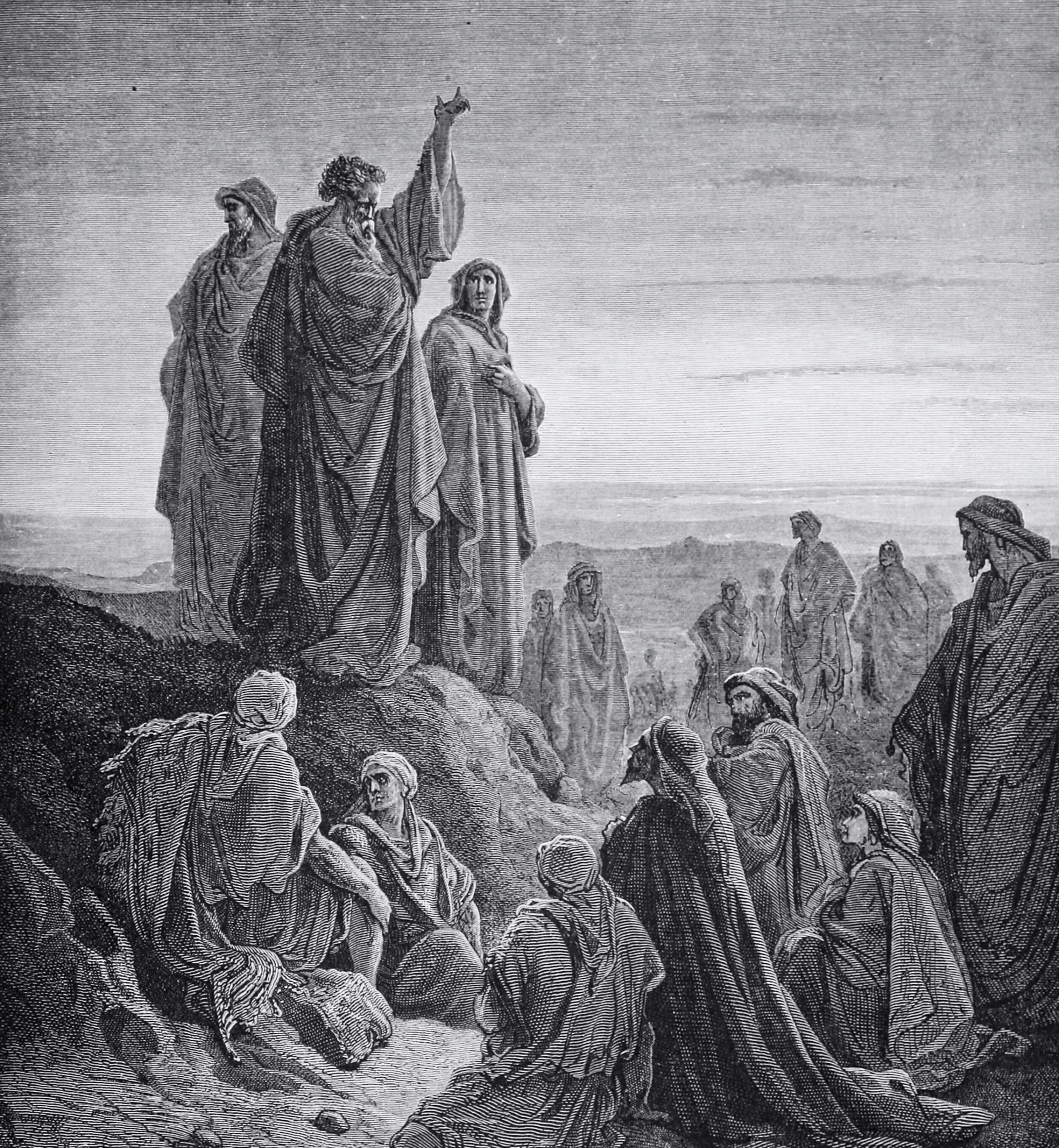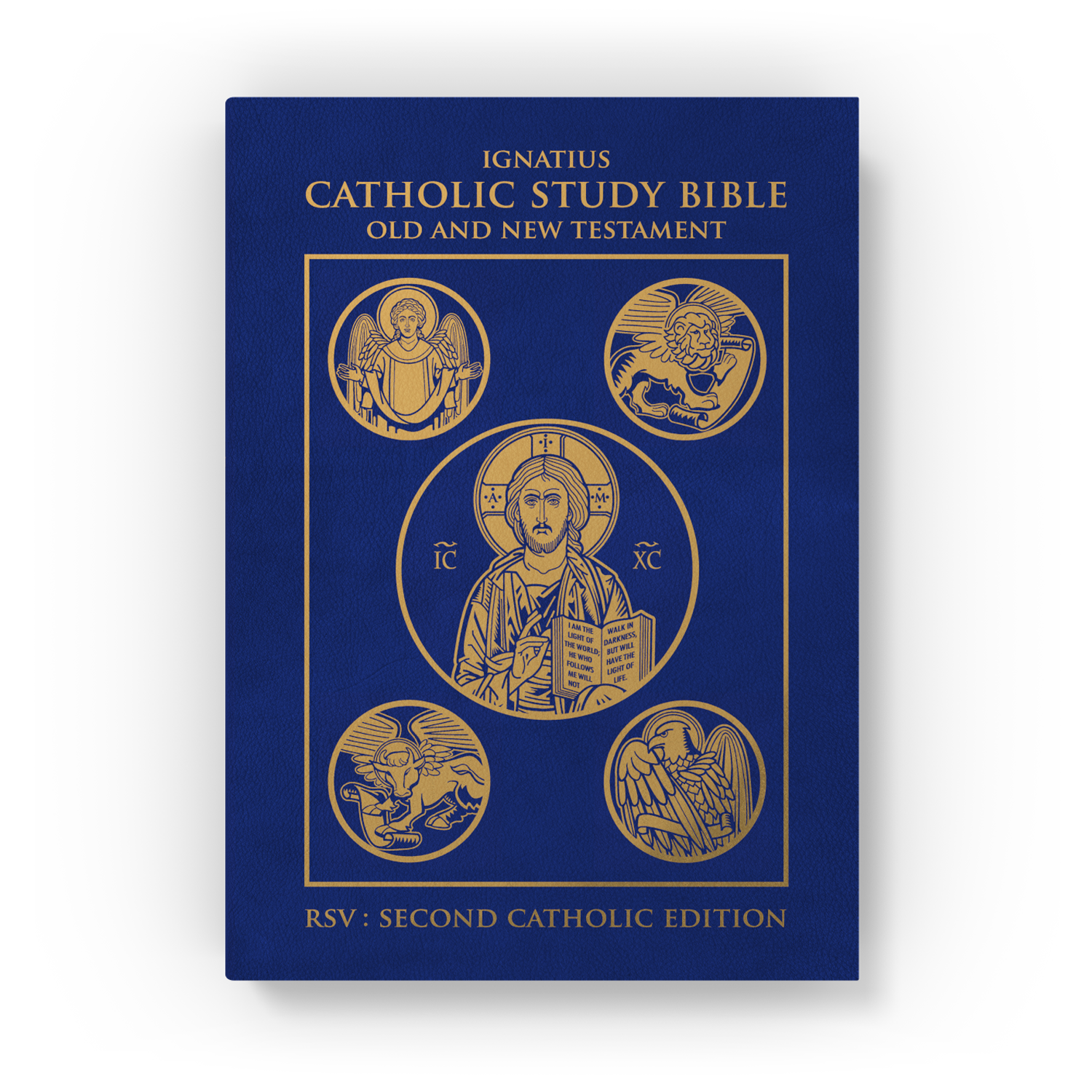What Are Some Good Bible Study Tools for Catholics?
By Clement Harrold

It’s often said that Catholics don’t know the Bible very well, but this isn’t entirely accurate. The truth is that Catholics who regularly attend Mass are often a lot more well versed in the Scriptures than they realize.
Although we still have a lot to learn from our Protestants brothers and sisters about the value of memorizing Sacred Scripture, we shouldn’t underestimate the extent to which our experience of the Church’s tradition and sacraments provides us with an intuitive sense for understanding the Bible. Indeed, as Catholics, we have the ability to read the Bible from the heart of the Church—the way it is meant to be read—which gives us a distinct advantage.
That being said, there’s always much more to learn! Growing in our knowledge of the breadth and depth of Scripture is a lifelong task, and always a worthwhile one. Writing to the young Church leader Timothy, St. Paul reminds him: “All scripture is inspired by God and profitable for teaching, for reproof, for correction, and for training in righteousness” (2 Tim 3:16).
Before we get to our list of recommended study tools, let’s first say a quick word on translations. The above quotation from 2 Timothy is from the Revised Standard Version Catholic Edition (RSVCE), which is the translation of choice for many orthodox Catholic theologians and scholars. Although no translation is perfect, the RSVCE strikes a good balance between faithfully capturing the meaning of the original Greek, while still maintaining a certain elegance in style.
Recommended Study Bibles
The past few months have seen the release of the Ignatius Catholic Study Bible, complete with Old and New Testaments. Edited by Scott Hahn and Curtis Mitch, this resource contains nearly 18,000 footnotes. But be warned: at 2,320 pages, it’s not exactly pocket sized!
Other excellent study Bibles include the Didache Bible, which incorporates commentaries based on the Catechism of the Catholic Church, as well as the Navarre Bible series, which is inspired by the vision of St. Josemaría Escrivá, founder of Opus Dei.
Another multi-volume Bible worth checking out is The Word on Fire Bible, which includes beautiful Christian art and reflections from Bishop Robert Barron.
Understanding the “Big Picture” of the Bible
Sometimes when we’re reading the Bible it can be difficult to spot the forest for the trees. One classic book which helps provide a sense of the overarching narrative of salvation history is Scott Hahn’s A Father Who Keeps His Promises: God’s Covenant Love in Scripture.
Another helpful set of books, especially for beginners, are John Bergsma’s Bible Basics for Catholics. Three volumes have been published so far: (1) Bible Basics for Catholics: A New Picture of Salvation History, (2) New Testament Basics for Catholics, (3) Psalm Basics for Catholics: Seeing Salvation History in a New Way.
More In-Depth Study of Scripture
Readers who want to go deeper in their study of the Bible should consider the outstanding Catholic Commentary on Sacred Scripture series. A more academic treatment of the biblical books can be found in the Sacra Pagina series, although these tend to approach the Scriptures through a more historical-critical lens.
Anybody engaging in serious study of God’s Word must take into account St. Thomas Aquinas’ masterful commentaries on Isaiah, Job, Matthew, John, and many of the other New Testament books. His commentaries are available online and in print.
Aquinas also offers one of the best summaries of how the Church Fathers interpreted Sacred Scripture. His Catena Aurea (Latin for “Golden Chain”) offers verse-by-verse commentary on the four Gospels using the writings of the Church Fathers. Another invaluable resource for patristic commentaries on Scripture is the Ancient Christian Commentary on Scripture series.
Making Sense of the Old Testament
For many readers of the Bible, getting to grips with the Old Testament can feel particularly bewildering. A popular-level resource aimed at helping Catholics work through these difficulties is A Catholic Guide to the Old Testament from Ascension Press. A somewhat more academic treatment, worth its weight in gold, is John Bergsma and Brant Pitre’s A Catholic Introduction to the Bible: The Old Testament.
The Historical Reliability of the Bible
These days it’s fashionable to pour scorn on the Bible as unscientific and unhistorical. Some books which combat these false assumptions include Brant Pitre’s The Case for Jesus: The Biblical and Historical Evidence for Christ and Lee Strobel’s The Case for Christ: A Journalist's Personal Investigation of the Evidence for Jesus. For a more detailed academic treatment, readers might enjoy Paul Rhodes and Gregory Boyd’s The Jesus Legend: A Case for the Historical Reliability of the Synoptic Jesus Tradition. For historical issues specifically pertaining to the Old Testament, K.A. Kitchen provides a classic analysis in his On the Reliability of the Old Testament.
Online Bible Study Tools
The St. Paul Center’s own All Access Membership plan offers hundreds of hours of video content unfolding the riches of the Scriptures.
Bible Gateway is a superb resource for searching and comparing Bible passages, with over 150 translations to choose from.
Bible Hub offers helpful interlinear tools for readers looking to examine the Scriptures in the original Hebrew or Greek.
A list of online versions of the Latin Vulgate Bible can be found here. For a brief history of the origins and development of the Vulgate, check out this article.
Bible Apps
Two free Bible apps which every Catholic should have are the Lighthouse Catholic Study Bible App and the Catena App. The Lighthouse Bible offers a user-friendly interface which makes it easy to search for verses even when you’re offline, while Catena boasts over 60,000 verse-by-verse commentaries drawn from the Church’s tradition.
Other Bible Resources
A highly practical book series for homilists is John Bergsma’s The Word of the Lord: Reflections on the Sunday Mass Readings (available in four volumes: Year A, Year B, Year C, Solemnities and Feasts).
A more spiritual approach to the Scriptures can be found in Scott Hahn and Ken Ogorek’s Breaking the Bread: A Biblical Devotional for Catholics.
Finally, readers looking to go even deeper in their study of the Scriptures should explore Scott Hahn’s extensive bibliography for Catholic biblical study.
Clement Harrold earned his master’s degree in theology from the University of Notre Dame in 2024, and his bachelor’s from Franciscan University of Steubenville in 2021. His writings have appeared in First Things, Church Life Journal, Crisis Magazine, and the Washington Examiner.
You Might Also Like
More than any other study edition of the Bible on the market, the Ignatius Catholic Study Bible is “like a householder who brings out of his treasure what is new and what is old” (Mt 13:52): it draws insights from the best of modern scholarship as well as the best of the Catholic tradition of interpretation through the ages.
The result is a veritable library of Bible study resources, all under one cover, designed to help readers understand the written Word of God and apply its lessons to their lives today. It is simply the most ambitious undertaking of its kind in our generation.
